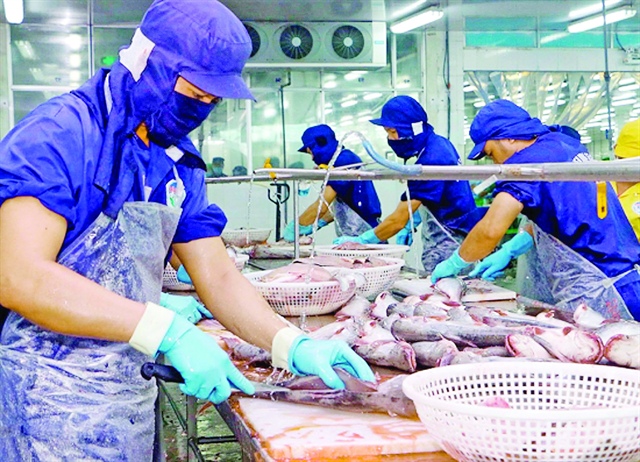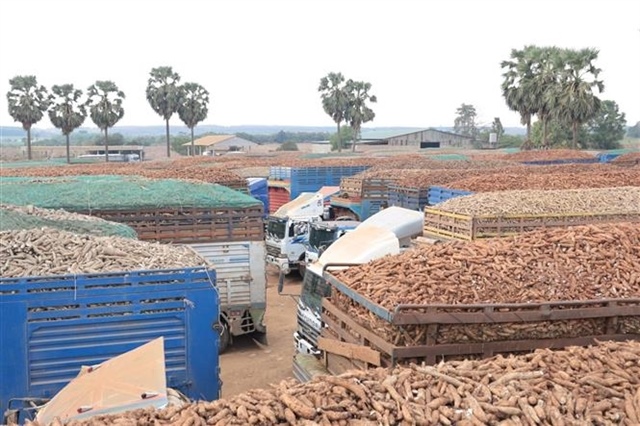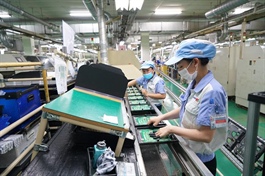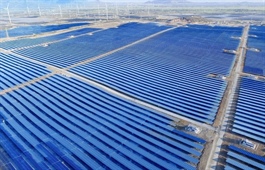High price hampers Vietnam’s seafood exports to Asia-Pacific markets
High price hampers Vietnam’s seafood exports to Asia-Pacific markets
Although they are subject to many preferential tariffs, Vietnamese seafood products are still having trouble expanding their market share in Asian-Pacific markets due to their uncompetitive prices.
High prices
High prices are making Vietnamese seafood products uncompetitive in the 15 member states of the Regional Comprehensive Economic Partnership Agreement (RCEP), which came into effect this year. Tran Le Dung, First Secretary in charge of the Vietnam Trade Office in Malaysia, said that in Malaysia, Vietnamese seafood products are sold at prices higher than those of Chinese and Thai products of the same kind. The Vietnam Trade Office connected Vietnamese sellers of dried fish and tuna with Malaysian importers of these products but transactions between them failed due to price disagreement, Dung said.
The trade office representative said that although it has a small population, Malaysia has a high demand for seafood, and is not only a member of the RCEP but also participates in many free trade agreements (FTAs). These factors mean that successful penetration of this market will enable Vietnamese seafood businesses to access many other markets in the bloc.
Price has become the biggest problem for Vietnam to increase seafood exports, said Le Thi Phuong Hoa, Trade Counselor of the Vietnam Trade Office in Laos. According to a survey by her office, Thai seafood products are available in Laos, with black tiger shrimp (30 shrimp per kilo) sold for almost VND300,000/kg and white squid (5 squids/kg) priced at VND190,000/kg.
Vietnamese trade offices in RCEP countries said the growing transportation costs over the past two years have considerably increased the price of Vietnamese seafood exports, making it hard to take advantage of tariff preferences, expand market share and increase export value.

High prices are a major challenge for seafood exporters |
Quality control, branding
Consisting of 15 members, including Vietnam’s major trade partners – China, the Republic of Korea (RoK), and Japan, the RCEP agreement opens up opportunities for Vietnam to increase its seafood exports, as many RCEP markets have a high demand for aquatic products.
China, for example, has reached a domestic aquaculture and fishing output of 64 million tonnes per year but its demand for seafood amounts to 67.3 million tonnes per annum, so it is importing a large amount of seafood yearly.
Vietnam's seafood exports (mainly including frozen tra and basa fish, and shrimp) to China reached more than US$530 million in the first four months of this year, double that in the same period last year. Nong Duc Lai, Head of the Guangzhou branch of Vietnam’s Trade Office in China, said China is a large market with diverse consumer needs and shares a long borderline with Vietnam, enhancing seafood export opportunities to this market.
Australia has become a potential importer of Vietnamese seafood. Nguyen Thu Huong, Representative of the Vietnam Trade Office in Australia, said that in 2021, Vietnam surpassed China to become the biggest seafood exporter to Australia, with a turnover of over US$184.4 million. “I’m sure that Vietnam has the opportunity to increase seafood exports to Australia because the two countries are signatories to many FTAs, seafood consumption in Australia has tended to increase, currently reaching 15kg/person/year, and Australia is increasing seafood imports from Asia to serve domestic consumption,” Huong said.
Economists say domestic enterprises need to optimize production and find ways to reduce prices, including transportation costs, in order to increase competitiveness. They also need to properly invest in product quality through compliance with regulations on food safety and hygiene, product standards, and packaging designs. Domestic authorities need to closely control export seafood quality to avoid cases of product return and destruction due to substandard quality, Lai said.
| Product cost reduction, compliance with regulations on technical standards, and efficient trade promotion are crucial for Vietnamese seafood businesses to increase exports to RCEP markets. |























